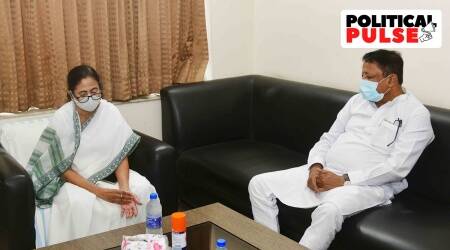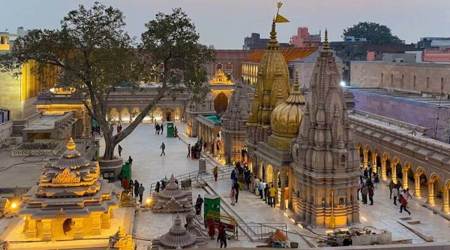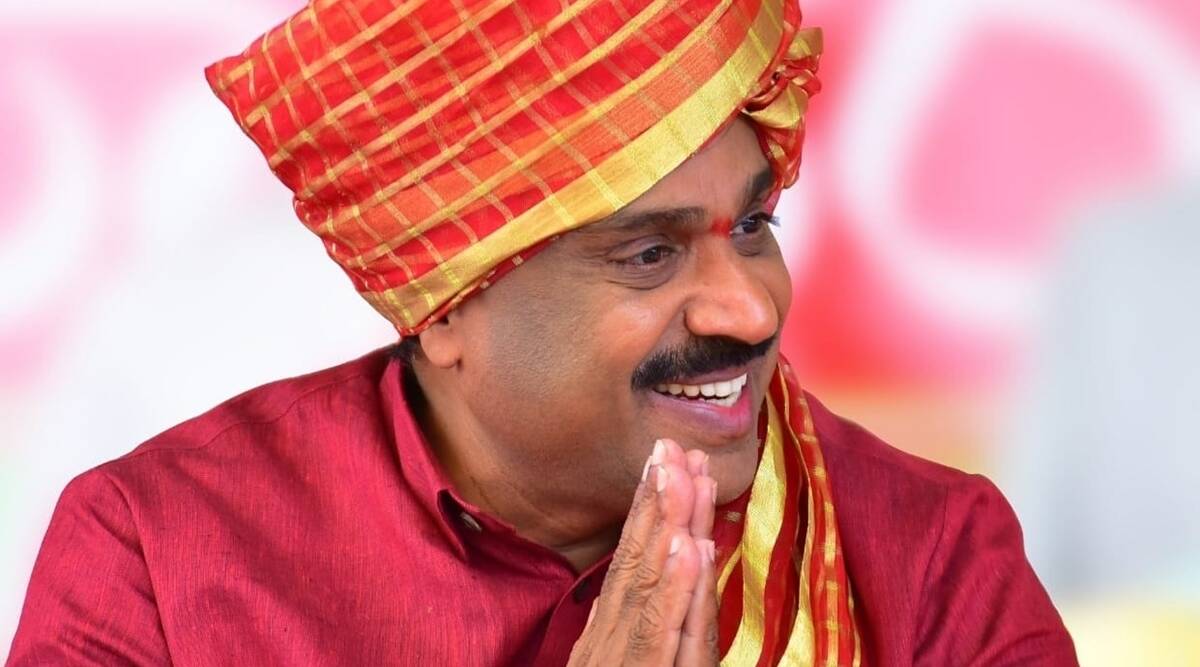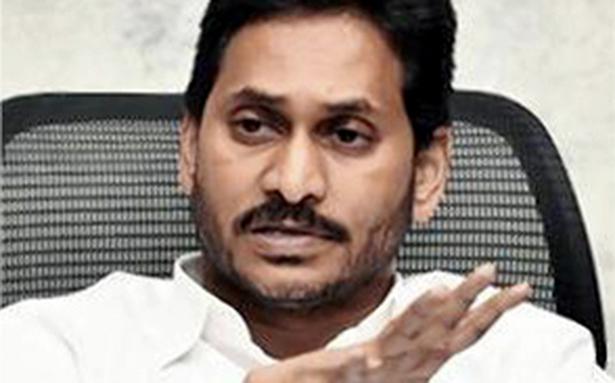The Andhra Pradesh government has told the Supreme Court it has no objection to resumption of iron ore mining in Bellary reserve forest where it was banned in 2010 over encroachment of forest land and other alleged violations, primarily by Obulapuram Mining Company (OMC) of former Karnataka minister G Janardhan Reddy.
Minister for Tourism and Infrastructure Development in the Karnataka government from 2008 to 2011, Reddy is under CBI investigation for alleged illegal extraction and money laundering.
The state made the submission to the Supreme Court after OMC sought the apex court’s permission to resume mining activities, claiming that “nothing further survives” in the case since the boundary dispute between Andhra Pradesh and Karnataka that had caused mining to stop was now resolved.
In March 2010, the SC stopped mining in Andhra’s Anantapur district until the mining leases were demarcated on the ground after its Central Empowered Committee (CEC) reported rampant encroachment and recommended that companies guilty of mining outside lease areas be allowed to resume mining and made to pay exemplary penalty.
Eleven years later, on July 21, the SC was informed that the two states had finally accepted the state boundary report of the Surveyor General of India. At the same hearing, as OMC claimed that this cleared the ground for restarting mining, the counsel appearing on behalf of Andhra Pradesh submitted, “on instructions, that the State has no objection to mining activities being carried out within its demarcated area.”
In January 2010, soon after Konijeti Rosaiah succeeded YS Rajasekhara Reddy as Chief Minister, the Andhra Pradesh government had told the SC that the Reddy brothers had in the Bellary forests illegally mined around 1.95 lakh tonnes of iron ores and that allowing them to continue would be a “premium on dishonesty”.
The SC is to hear the matter on August 10.
The apparent shift in the state’s stand has riled a number of officials who helped turn the tide against the Reddy brothers during 2009-2010.
“Since the permanent pillars and rocks marking the state boundary were removed to encroach on forest land, it was necessary to first determine the interstate line before demarcating individual leases, quantifying encroachments and fixing accountability. This is supposed to be the beginning (of that process) and not a closure,” said a forest officer who served in Anantapur district.
In fact, a second report submitted by the CEC in April 2011 underlined a long list of illegalities:
* None of the mining leases demarcated on the ground.
* Dumping on reserve forest land.
* Removal of boundary pillars to increase lease areas.
* Unlawful extension of mining leases by 12-17 years.
* Mining without forest clearance.
* Construction of illegal roads through the forest, including one into Karnataka apparently to smuggle iron ore across the border.
* Reported quantities of iron ore dispatched far exceeding the production capacity of the mines.
A senior official with the Andhra Pradesh mining department said multiple firms transported iron ore mined illegally in lease areas of Karnataka’s Bellary through forest roads to mines in neighbouring Anantapur district in Andhra Pradesh and then to one of the ports as legal consignments to be shipped out.
“The modus operandi was clear to us. Even the SC said that material extracted by at least two companies was routed through OMC and asked the CBI (in September 2011) to probe the links,” he said.
Instead of “resuming business as usual”, the official said, Andhra Pradesh should “broadly follow the course taken on the Karnataka side” of Bellary forests. “There, each lease was scrutinised before placing it in one of the three categories based on the extent of illegalities found. While the worst offenders were barred, others were allowed to resume mining after making amends and a production ceiling was set to prevent over-extraction,” he said.
Riding a boom in the global steel market, Janardhan Reddy, along with his brothers Karunakara Reddy and Somashekara Reddy, rose to prominence in Andhra Pradesh in the early 2000s. Of 188 hectares under iron mining lease in Bellary reserve forest in the state’s Anantapur district, 134 hectare was awarded to OMC.
Reddy’s OMC and Brahmani are among the companies being investigated by the CBI for alleged financial links with the businesses of YSR’s son and Andhra Pradesh chief minister Jagan Mohan Reddy. The Reddy brothers were ministers in the first BJP government in Karnataka during 2008-2011. In 2018, Somashekara Reddy and Karunakara Reddy were elected to the Assembly on BJP tickets.
.
Fasal Bima Yojana will be more effective if Centre and State share premium, says Jagan
Necessary changes made to ensure joint implementation, says Union Agriculture Minister
Necessary changes made to ensure joint implementation, says Union Agriculture Minister
Andhra Pradesh Chief Minister Y.S. Jagan Mohan Reddy has suggested some changes in the Pradhan Mantri Fasal Bima Yojana, saying that it would benefit all farmers.Mr. Jagan Mohan Reddy on Tuesday participated in a video conference with Union Agriculture Minister Narendra Singh Tomar over bringing Pradhan Mantri Fasal Bima Yojana the YSR Free Crop Insurance Scheme together.During the conference, the Chief Minister said that all agricultural activities in the State had been brought under 10,444 Rythu Bharosa Kendras (RBKs), where every details pertaining to the crops grown by farmers was being recorded and geo-tagged under e-cropping scheme. “The crop data get updated on a real-time basis. The State Government has cleared all hurdles of bringing every crop under insurance coverage through e-cropping. The government is paying the premiums that are to be paid by farmers and the State,” said Mr. Jagan Mohan Reddy. “The free crop insurance scheme would go a long way, if the Central and State governments bear equal shares of the premium paid by small and marginal farmers,” he said and requested the Union Minister to consider the proposal.The Chief Minister thanked the Centre for including Andhra Pradesh in the Fasal Bima Yojana and making changes in the guidelines.Mr. Narendra Singh Tomar appreciated the Chief Minister for protecting the interests of farmers, by bringing ‘revolutionary reforms in the agriculture sector’. He thanked Mr. Jagan Mohan Reddy for participating in the Pradhan Mantri Fasal Bima Yojana. “The necessary changes have been made in the crop insurance scheme as per the suggestions given by various State governments. The scheme will be jointly implemented by the State governments and the Cente,” said Mr. Tomar.Acknowledging the innovative programmes introduced by the State Government, the Union Minister said that a meeting would be held with Agriculture Ministers of States to discuss innovative schemes. “The schemes pertaining to natural farming and Agri Infra Fund being implemented in Andhra Pradesh are very inspiring,” he said. State Agriculture Minister Kakani Govardhan Reddy, Chief Secretary Sameer Sharma, Special Chief Secretary Poonam Malakondaiah, and other officials participated in the meeting. .
Scoring points | The Indian Express
The Class 10 examination results have triggered a war of words in Andhra Pradesh (AP) with the Opposition blaming the government for over two lakh students failing in the boards: The pass percentage of 67.26, coming in the wake of the pandemic, is the lowest in the last 20 years. On Thursday, TDP general secretary and son of former chief minister Chandrababu Naidu, Nara Lokesh Naidu, upped the ante and reached out to students and parents over Zoom, but was interrupted by ruling party (YSRCP) leaders, who accused the TDP of politicising school examinations and students. The TDP shut out the YSRCP voices and continued with the video conference. But the TDP initiative as well as the YSRCP challenge mark a good moment in public political discussion, in which issues such as school education usually take a backseat, if they figure at all. School education is far too serious a matter to be left to the bureaucracy; it ought to feature more in the agenda of political parties.
That the YSRCP, which has been sweeping elections at all levels in AP since the state was bifurcated in 2014, felt it necessary to intervene in the discussion over exam results, however, could also point to the traction the issue of education has traditionally had in Andhra society. In fact, education has been something of a possible gamechanger in elections in some of the southern states for some years now. If the socialisation of educational institutions polarised Kerala in the late 1950s, leading to a mass movement and the undemocratic dismissal of the CPI government in 1959, the AIADMK under MGR enhanced its pro-poor image and cemented its electoral appeal by introducing a mid-day meal scheme in Tamil Nadu in the early 1980s. In recent months, the DMK in Tamil Nadu has found in NEET, the entrance exam for medical and pre-medical courses, an issue to corner both the BJP and AIADMK. Elsewhere, Nitish Kumar in Bihar and Arvind Kejriwal in Delhi have cultivated constituencies by focusing on school students and their parents. Free schooling and bicycles for girl students have allowed Nitish Kumar to carve a niche in a polity defined primarily by caste whereas Kejriwal has made the work done by his government in schools a calling card as AAP seeks to expand beyond Delhi.
Hopefully, other political parties will take a cue from TDP, YSRCP, DMK, JD(U), AAP, and bring education to the forefront of political debate. It would be a necessary departure from the polarising talk on identity and religion that mostly dominates it.
Best of Express Premium Premium
Premium Premium
Premium Premium
Premium Premium
Premium
!function(f,b,e,v,n,t,s)
{if(f.fbq)return;n=f.fbq=function(){n.callMethod?
n.callMethod.apply(n,arguments):n.queue.push(arguments)};
if(!f._fbq)f._fbq=n;n.push=n;n.loaded=!0;n.version=’2.0′;
n.queue=[];t=b.createElement(e);t.async=!0;
t.src=v;s=b.getElementsByTagName(e)[0];
s.parentNode.insertBefore(t,s)}(window, document,’script’,
‘https://connect.facebook.net/en_US/fbevents.js’);
fbq(‘init’, ‘444470064056909’);
fbq(‘track’, ‘PageView’);
.






